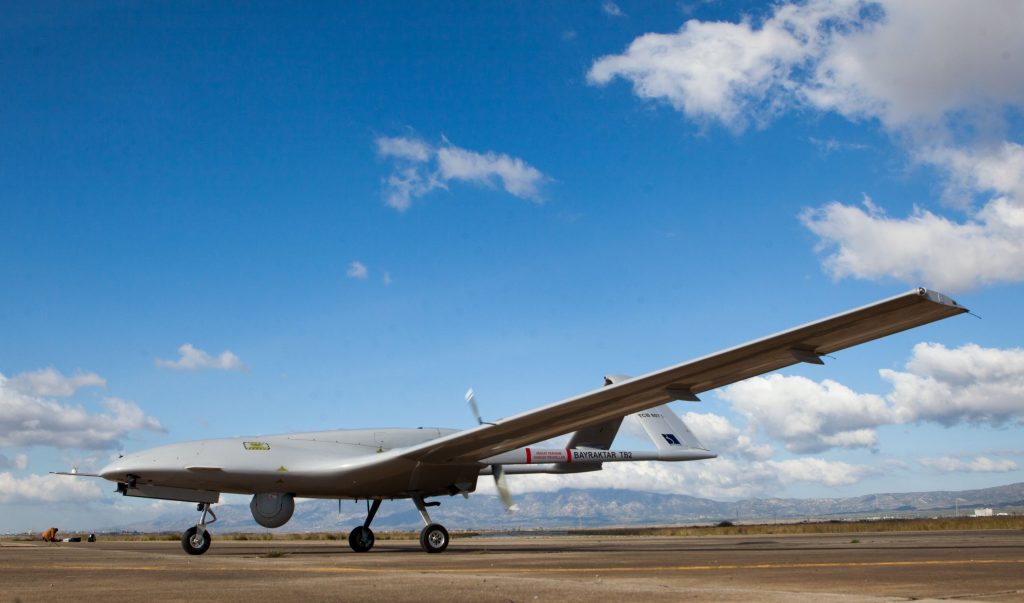If anything, the inclusion of as many as five Turkish firms in this year’s list of 100 defense companies of the world highlights Turkey’s impressive rise as a major arms producer.
But what is more significant is that the rapid development of Turkey’s defense industries and the increasing global acceptance of their products have resulted in many collateral benefits, such as the consolidation of President Recep Tayyip Erdoğan’s regime without any fear of a military challenge, Ankara pursuing a militarized foreign policy in its neighborhood, and the country managing flexible geopolitical alliances.
The August issue of “Defense News” magazine has listed 100 top defense companies of the world, and in this listed five (up from last year’s four) Turkish companies are:
- ASELSAN (42, up from 47 last year): producer of defense electronics, especially communications and sensors.
- Turkish Aerospace Industries (TAI or TUSAS) (50, up from 58): leader in Turkish defense aerospace
- ROKETSAN (71, up from 80): The producer of unguided rockets and guided missiles has seen revenues grow largely due to the integration of its products into Turkish unmanned systems.
- Machine and Chemical Industry (MKE) (84, new): producer of small arms, artillery and ammunition
- Military Factory and Shipyard Enterprise (AFSAT) (94, new): aircraft, naval, and land systems production and overhaul.
Interestingly, the most dynamic and much talked about sector in the Turkish defense industry—unmanned systems—has yet to produce “a Top 100 firm,” but the way TB2 Bayraktar and Akinci Unmanned Combat Aerial Vehicles are moving forward and in great demand across various global hotspots, it is a matter of time before they figure in the exalted list.
Turkey now exports arms from Chile in South America to Indonesia in Asia. It supplies systems to countries in Africa, the Middle East, and the Far East, as well as within NATO. By transferring its technology, Turkey also favors joint production in other countries. Examples in this category are Kazakhstan, the Kingdom of Saudi Arabia, Malaysia, the UAE, Azerbaijan, Pakistan, and Indonesia.
Reportedly, Turkish manufacturers succeed in providing training, going above and beyond their competitors. They ensure that their company personnel are stationed in importing countries for a year or even longer, guaranteeing comprehensive support. This level of commitment and dedication has earned the trust and loyalty of countries, particularly in the Arab world, where Turkish arms are now in the biggest demand.
Not long ago, Turkey was the third biggest receiver of arms in the world. But since the Justice and Development Party (AKP) came to power in 2002, Turkey’s indigenous defense industry has progressed at an impressive rate, making the country the 12th biggest arms exporter, according to Stockholm International Peace Research Institute (SIPRI) figures.
It has significantly decreased its dependence on foreign military imports from around 80 percent in 2004 to about less than 20 percent now.
Engagement in defense collaborations offers Turkey several strategic benefits. It has boosted Turkey’s regional clout, cementing its role as a pivotal actor in the Middle East and North Africa (MENA) landscape. As an important source of arms, possible because of effective domestic defense industries, Turkey has managed to conclude many bilateral agreements in its proactive foreign policy maneuvers in this part of the world.
For instance, it signed a defense agreement with Libya in 2020, which generated such confidence in Tripoli that it led to the subsequent signing of a hydrocarbon reserves agreement in 2022.
Similarly, Turkey’s solid support for Azerbaijan, a perennial priority in its foreign policy agenda, during the 2020 Nagorno-Karabakh War depended to a great extent on the supply and deployment of Turkish defense industry products, notably the Bayraktar TB2. With Azerbaijan’s resultant victory over forces from Armenia, Turkey’s regional profile strengthened the most.
Similar examples, like the Qatar crisis and the Syrian war, have enhanced Turkey’s regional standing as a crucial contributor to regional stability, fostering avenues for more partnerships across different domains. This was essentially due to Turkish defense exports.
Following the 2021 al-Ula agreement, which ended the 2017 Gulf crisis and blockade against Qatar, relations among Ankara, Abu Dhabi, and Riyadh improved significantly.
Turkey’s rise as a defense manufacturer seems to align perfectly with the strategic objectives of the leading Gulf countries. Turkish defense products are not only highly efficient but also competitively priced, making them an attractive option for these countries, which were otherwise dependent on Western arms.
Today, Saudi Arabia is the biggest procurer of Turkish military equipment—more precisely, UCAVs. In what is said to be Turkey’s “biggest defense and aviation export contract” to date, Saudi Arabia has agreed to purchase over US$3 billion worth of Baykar’s next-generation UAV Akinci.
eurasiantimes.com
